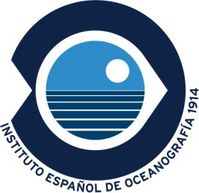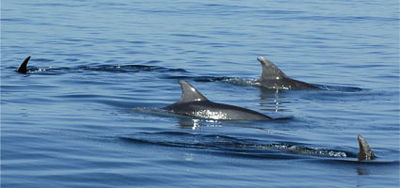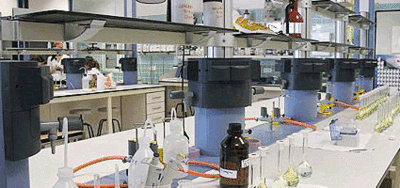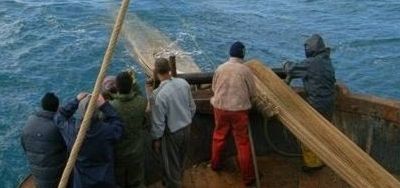The Spanish Oceanographic Institute (IEO) together with the General Secretariat for the Sea (SGM), discover a cold water coral reef in an underwater canyon in the Cantabrian Sea. On the other hand, and together with the University of Barcelona, the IEO is developing a methodology which permits the definition of safety distance netween fish farms and sensitive ecosystems.

The discovery of a cold water coral reef represents an important scientific discovery, as the existence of these deep reefs had been previously unheard of in Spanish waters.
Researchers from the Spanish Oceanographic Institute (IEO), aboard the oceanographic vessel Vizconde de Eza, belonging to the General Secretariat for the Sea (SGM), have discovered a cold water coral reef in a deep area of the Avilés Canyon. This finding, of great scientific importance, took place during the course of an oceanographic campaign for the INDEMARES project.
The principal objective of this project, coordinated by the Biodiversity Foundation, is to contribute to the protection and sustainable use of the biodiversity in Spanish seas through the identification of areas of value for Natura 2000.
It is noteworthy that this event represents an important achievement for science given that, to-date, the existence of this type of deep reefs in Spanish waters had been unheard of and there is great concern on a worldwide scale for the protection of these extraordinary ecosystems with elevated indices of biodiversity.
During the campaign an area of more than 6.400 km2 was cartographed and during the course of the studies important discoveries were made, such as the existence of a complex and unknown system of canyons tributaries to the principal Canyon of Avilés, and which ultimately empty into the abysal plains of the Gulf of Vizcaya in one sole fan-shaped deposit, located at 4.800m depth.
One of these tributary canyons, of 16,5 km length and 6,1 km maximum width, presents singular features, both in terms of its geological characteristics and current dynamics, as well as due to having identified within it and at great depth an outstanding and well structures cold water coral reef.
The development of a methodology which permits the definition of a safety distance between fish famrs and sensitive ecosystems.
The discharge from aquaculture facilities with an annual production of 6.000 tonnes can reach prairies of marine phanerogams located up to two kilometres away.
Scientists from the Spanish Oceanographic Institute (IEO) and the University of Barcelona have developed a methodology for detecting the influence on marine ecosystems of discharge from fish farms in open waters. Thanks to this methodology, based on the analysis of the nitrogen isotope signal in the tissue of marine vegetables, it is possible to select the areas apt for aquaculture under ecological criteria, establishing safety distances between the farm and the ecosystem sensitive to this activity.
The work consists in analysing the proportions of the different nitrogen isotopes in the tissue of marine vegetable organisms (algae and marine angiosperms) and comparing it with the proportions of these same isotopes in the discharge whose impact it is sought to evaluate. In this way it is possible to determine what proportion of nitrogen from the ecosystem comes from the discharge of aquaculture facilities and thereby establish, under ecological criteria, a safety distance which would protect ecosystems vulnerable to potential impact.
Part of this methodology, recently published in the prestigious magazine Marine Environmental Research, and with which researchers from the University of Alicante also collaborated, has been applied to the study of the influence borne by a complex of farms of some 6.000 tonnes of annual production, located in San Pedro del Pinatar (Murcia), upon the prairies of Posidonia oceanic within the surrounding area and it was determined that the discharge from these facilities affects organisms located within two kilometres distance.
The Spanish Oceanographic Institute (IEO) is a public research body (OPI), part of the Ministry of Science and Innovation, dedicated to the research of marine sciences, particularly in relation to scientific knowledge of the oceans, sustainability of fishing resources and the marine environment. The IEO represents Spain in the majority of international scientific and technological forums relating to the sea and its resources. It has nine coastal oceanographic centres, five marine crop experimentation plants, twelve mareographic stations, a reception station for satellite images and a fleet made up of six oceanographic vessels, amongst which of note is the Cornide de Saavedra, of 1.100 tonnes displacement and 68m length.











